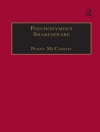In Israel Zangwill’s groundbreaking play, 'The Melting-Pot, ’ the author masterfully explores the complexities of identity and cultural assimilation within the backdrop of the early 20th-century American immigrant experience. Through a rich tapestry of dialogue and vivid characterization, Zangwill paints a vivid picture of the struggles and triumphs faced by immigrants as they navigate their newfound lives in a rapidly modernizing society. The play’s title serves as a metaphor for the forging of a unified American identity amidst diverse backgrounds, while also addressing the tensions that arise from conflicting cultural values, making it a poignant reflection of the social landscape of his time. Israel Zangwill, a prominent Jewish writer and social reformer, was deeply influenced by his own experiences as an immigrant and the challenges faced by marginalized communities in society. Born in London to Jewish parents who fled persecution in Eastern Europe, Zangwill’s advocacy for social justice and his commitment to the plight of the disenfranchised informed his narrative style. His works often encapsulate the intersection of culture, identity, and politics, reflecting the anxieties of a society in flux. 'The Melting-Pot’ is essential reading for anyone interested in the themes of multiculturalism and the American experience. Zangwill’s poignant exploration of identity and belonging remains relevant today, inviting readers to reflect on the ongoing dialogue surrounding immigration and cultural integration in contemporary society.
O autorze
Israel Zangwill (1864–1926) was an English author and playwright of Jewish descent, known for championing cultural assimilation and for his keen insights into late-19th and early-20th-century Jewish life. Zangwill’s literary style often combined wit, satire, and a deep humanism, reflecting his advocacy for Jewish rights and his interest in questions of identity and integration. He is perhaps best remembered for his 1908 play 'The Melting-Pot’, which presented a powerful metaphor for the process of American immigrants of diverse backgrounds fusing into a single, unified society. The title of this work has since entered the lexicon as a term for multicultural assimilation. While 'The Melting-Pot’ secured Zangwill’s place in cultural history, his repertoire extends beyond just that. His other works, such as 'Children of the Ghetto’ (1892) and 'Dreamers of the Ghetto’ (1898), captured the struggles of Jewish people in the Russian Empire and the West, offering a window into their worlds. Zangwill was also actively involved in social causes, including campaigning for the rights of women and the search for a Jewish homeland, predating the establishment of the state of Israel. His confluence of literature and social activism left a lasting impact on both Jewish literature and the broader landscape of English letters.












